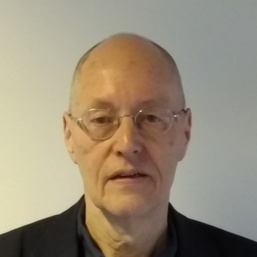
Opinion | At the university, truth-telling takes precedence over hurt feelings
The actions against ISW lecturer Laurens Buijs take sociologist Erik van Ree back to the bygone days of the 1970s. As student at the UvA, he was a member of a Maoist-oriented Agitation Collective, whose core business was a tightly orchestrated critique of college textbooks.
To us, any non-Marxist science was not science. Our interruptions were such that lectures were difficult to give and follow, something I still remember with a certain shame. The new agitation crowd has descended upon Buijs' negative comments on the concept of non-binarity, accusing him of “assertions without scientific basis” and of “discrimination against non-binary people.” Buijs is said to be a “danger to student safety.” In my opinion, the students miss the mark on both counts.
Supporters of the thesis of non-binarity consider thinking in terms of two genders to be outdated. They argue that the feeling of being male or female is a cultural construct. Buijs dismisses this as bullshit and empty hype: the male or female sense of identity of the vast majority reflects everyone's genetically programmed gender constitution. But gender identity is connected to hundreds or thousands of genes, and as yet we do not know how this connection works. For the time being, we simply do not know what is the proportion of genetics and what is the proportion of culture. Buijs' hypothesis is therefore no more or less scientific than that of the constructivists.
Unproven hypotheses
A minority of people feel themselves to be asexual: non-binary. Buijs does not accept this as reality; he suggests that these people engage in self-deception. They are, according to Buijs, not non-binary but androgynous; they are people with strongly mixed male-female genetic material. It seems to me that the feeling of asexuality is probably as hardwired genetically as the feeling of being male or female in others. But again, we don't know. We do not yet know with which gene constellation a non-binary sense of identity corresponds. With the current state of knowledge, Buijs' ideas are not so much unscientific as unproven hypotheses. But so are those of his opponents.
The scientific status of Buijs' claims is relevant because academic freedom is more limited than freedom of speech. Academic freedom leaves teachers and researchers free to take any scientific approach, but excludes unscientific views: there is no flat-earth chair. Incidentally, this is also why racist, homophobic, and similar theories should be kept out of university teaching and research: they are nonsensical and unscientific.
But the requirements of science leave room for widely varying interpretations and assumptions. The boundaries between scientific and unscientific can never be precisely formulated. In borderline cases, it is wise to be on the safe side. The axe falls only when the flat earth comes into view.
Reptiles
But Buijs does make things difficult for himself. He suggests that the symbols of masculinity and femininity are “folded” into the “cosmic order.” Symbols are actually “living beings.” The reptile is also such a cosmic symbol. David Ike's idea that extraterrestrial reptiles govern us is not so crazy after all, according to Buijs. This kind of esoteric fantasy, popular among the populist right, belongs at the university only as an object of study. But to my knowledge, Buijs has not yet claimed scientific status for it in his teaching.
The second issue raised by the students concerns the allegedly discriminatory nature of Buijs' views. Central to the question of offensive discourse is “safe space.” In a nutshell, this concept indicates equal, non-discriminatory, and respectful treatment of all. Viewed in this way, this safe lecture hall differs little from Jürgen Habermas' ideal of the power-free, equal conversation situation.
The core of the view of Buijs' opponents can be found in the following sentence from their petition: “We do not accept a denial of the lived reality of non-binary people.” The authors are correct that Buijs sees nonbinary identity as a phantom and dismisses nonbinary activism as extremism, attention-seeking, and effect-seeking. But is it reasonable to claim that one's identity rests on a banned misconception?
Warlike
Restated as a general principle, the activist position boils down to this: statements with a negative or unfavorable tenor toward countries, cultures, or populations should be considered discriminatory and hateful per se. But such statements are not necessarily so. How about the following statements: Western culture is the most warlike culture in history, men are on average more criminal than women, and eating the host is a symbolic form of cannibalism. These are all thoughts that affect and potentially deeply hurt large groups in their perceived identity. But negative generalizations are not necessarily discrimination. At the university, truth-telling takes precedence over hurt feelings.
Safe space, a concept originating from the United States, has another, fundamentally problematic dimension. A space is deemed unsafe even when students are confronted with theories or images of a racist, transphobic, or otherwise unpleasant nature – even if the instructor does not endorse these negative views but merely presents them as objects of study. Confrontation with such material is considered offensive as such and should therefore be avoided.
Mein Kampf
There is no better illustration of this radicalization of the concept of security than the word “nigger.” Given that people have gradually come to experience the word as a swear word, it has rightly been withdrawn from civilized language use. But by now the difference between using the word and merely mentioning it has disappeared from sight. Even respectable daily and weekly newspapers now replace it with “the N-word” without a trace of irony. From this logic, a lecture devoted to The History of the Word ‘Nigger’ produces insecurity. A lecture on the Négritude movement becomes even more difficult.
For many years in my political philosophy class, I discussed the chapter of Mein Kampf on the racist state with students. But could this not, according to activist logic, have created an “unsafe situation,” for example, for Jewish students?
Irreconcilable militancy here paradoxically merges with a discourse of weakness: the mere confrontation with discriminatory material might already be perceived by students as an intolerable attack. The regime that many adults deem imperative for children – keep anything harmful out of their sight! – is declared by activists to apply to themselves and their supporters: militant self-policing. Academic freedom remains intact only if everything – whether it be a word, image, or text – may be mentioned and shown; offensive material should never be declared taboo as an object of study.
Erik van Ree is a former professor of East European studies and a visiting researcher at the UvA.

